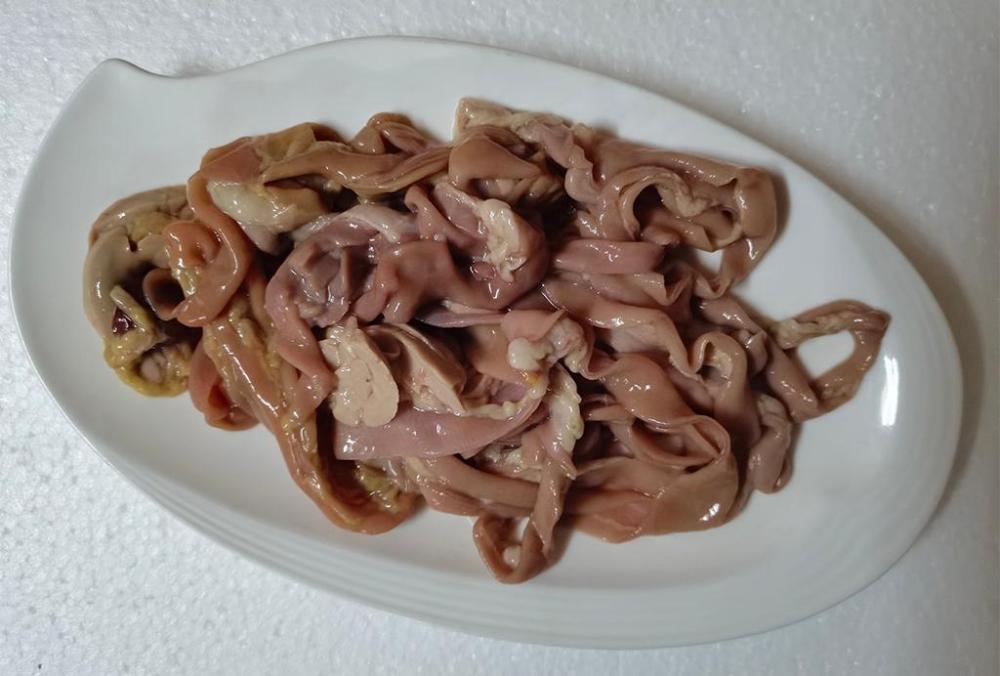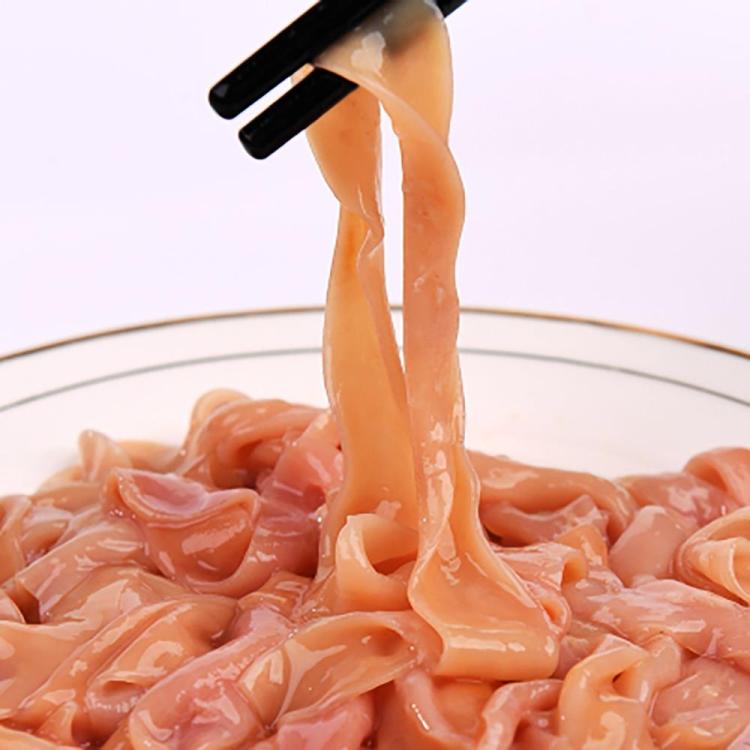Perhaps the most divisive ‘nose-to-tail’ part of poultry is a part which many people find repulsive, yet many have eaten unawares, albeit probably not from poultry.
Chicken Intestines
I’m talking intestines which, of course, have been used as natural sausage casings for centuries*. Poultry intestines aren’t normally used in this way but are very popular in parts of the world.
In China, a spicy Chongqing hotpot is incomplete without having some intestines to drop in to quickly cook. Chicken or duck are common but most highly prized are 鹅肠 (é cháng), goose intestines, which in some birds can be as much as three metres / nine feet long. Intestines are also stir-fried with soy sauce. Poultry intestines can be hard to avoid in Hong Kong.
Goose Intestines
Across SE Asia, poultry intestines are valued highly. Marinated and fried chicken intestines are used in the Philippines for a dish known as ‘Adobong Isaw ng Manok’, or just ‘isaw’, for example.
In South Africa, grilled intestines are often part of a braai, or barbecue. Alternatively, they can be curried as ‘curry malana’. Recipe here.
Of course, the Southern States in America have their chitterlings or chitlins, but do they also eat poultry intestines?
Of course, given the intestines function in the bird, correct and careful preparation is required. The tubes have to be thoroughly cleaned. Squeezing hem between the finger tips can remove the bulk of any waste, but then people get inventive. There are those who destroy their coat hangers to improvise tools to push out any unwanted material. Others fashion mini hoses to wash away the detritus. Many, including me cut the things open and clean under running water. A pair of scissors will do the job, or you can buy these dedicated tools to slit open the guts.
Intestine Cutters
The Chinese for ‘sausage’ is 腊肠 (là cháng) which literally means ‘cured intestine’.









